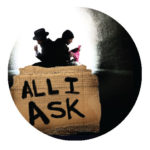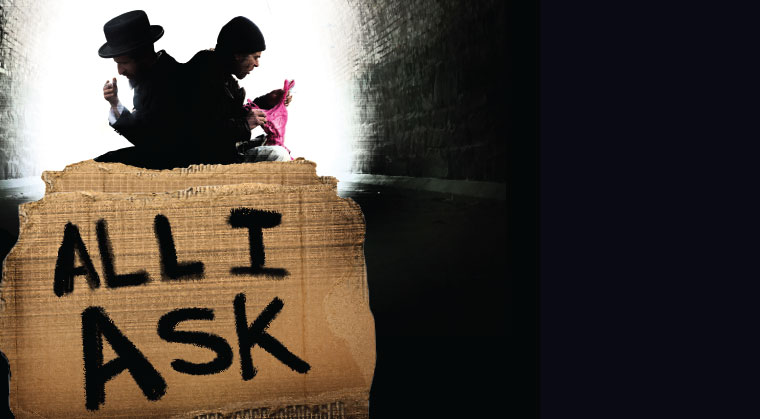All I Ask: Chapter 15


Afraid of Gehinnom, eh? What kind of life is that, constrained only by fear of punishment, instead of stirred by love?
It was five past eight. The older children had taken Bentzi to cheder, Raizele had gone to work, and the house was quiet. Raizele’s orange-meringue cake lay on the table, neatly cut and packed, ready for Yanky to deliver to Slovetitzky, so they could serve it at their bar mitzvah that evening.
But first, much more urgently, he had a hard task to cross off his list.
He had to call Rav Kitovitz, the rosh yeshivah.
He wanted this conversation to be over. He wanted to be free.
He wanted to quit.
“Shalom, HaRav Kitovitz,” he rehearsed mentally as he began tapping in the number. “This is Yanky Kleiner. I’m calling to say — to inform the rosh yeshivah that I’m giving up my shteller. No, I don’t have another offer. I’ll probably just go back to learning a full day in kollel.”
Then the rosh yeshivah would ask, “But why? You’ve been so successful, baruch Hashem, and the boys are gaining so much. We thought in another year or two we’d make you a maggid shiur.”
And then he would get sick and tired of the whole charade, and he’d say, “The bochurim are gaining, and they like me… and that’s exactly the problem. Kevod HaRav, in the state I’m in these days, I’m no role model for them. And since at least I still have my middah of honesty, baruch Hashem, I think it’s only fair that I cut my ties with young, impressionable bochurim. Find another meishiv for them, someone with real chassidishe bren. There are many excellent candidates I could suggest.”
While Yanky was imagining what the rosh yeshivah would say next, Rav Kitovitz answered the phone and the real conversation began. The rosh yeshivah listened.
“If this is what you really think,” he said, “of course I won’t interfere. It will be a loss to the bochurim — and to you too, I might add — but if this is your final decision, I respect that.”
The conversation ended with mutual wishes for a good and sweet year.
Yanky’s heart was light. And it was heavy. He rewarded himself with one of the imperfect slices of orange-meringue cake that hadn’t made it onto the serving tray, and then took the boxed cake and left the house.
After midnight, when he’d returned empty-handed from the convenience store, he’d met a kind neighbor who lent him a bottle of Curacao. The cake was saved. But his arguments with the cashiers were still ringing in his ears.
They wouldn’t sell a bottle of liqueur to a chassid in the middle of the night because they were afraid of the government inspectors. They were worried about the monetary loss. They’d be happy to bypass the law, but the threat of a fine or imprisonment scared them.
I don’t want to be like that. I don’t want to be a cashier who’s afraid to sell because the inspectors might catch him.
But that’s exactly what you are, the neat squares of cake told him mockingly through their clear acrylic box.
Afraid of Gehinnom, eh? What kind of life is that, constrained only by fear of punishment, instead of stirred by love?
Afraid of being ostracized, too.
Despicable coward.
(Excerpted from Mishpacha, Issue 771)
Oops! We could not locate your form.


